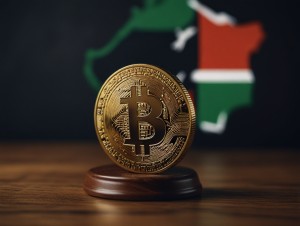In a recent legal development, the Nigerian High Court has issued a directive to Binance Holdings, a prominent cryptocurrency exchange platform, to furnish the Economic and Financial Crimes Commission (EFCC) with comprehensive data about Nigerian users trading on its platform. This directive stems from an interim ruling by Justice Emeka Nwite on February 29, following an ex parte motion filed against Binance by the EFCC.
Allegations of criminality and money laundering
The motion, presented by the EFCC’s legal representative, Ekele Iheanacho, alleged that Binance’s operations within Nigeria exhibit elements of criminality. Citing sections of relevant legislation, including the EFCC Act of 2004 and the Money Laundering (Prevention and Prohibition) Act of 2022, the agency emphasized the obligation to report suspicious transactions to authorities, with penalties for non-compliance.
An affidavit submitted by EFCC operative Hamma Bello underscored the Commission’s need to conclude its ongoing investigation following intelligence suggesting involvement in money laundering and terrorism financing through the Binance platform. Bello highlighted instances of illicit activities such as price manipulation and market distortions, purportedly leading to adverse effects on the Nigerian economy.
Response from Binance and government officials
Amidst these allegations, voices from both sides have emerged. Nathaniel Luz, CEO of Flincap, emphasized the potential benefits of dialogue between Binance and the Nigerian government. Luz suggested a roundtable conversation to address the concerns raised, portraying it as a constructive approach to resolving the matter.
Conversely, Bayo Onanuga, presidential adviser on information and strategy, voiced concerns over the impact of crypto platforms on the naira’s stability. Onanuga attributed a decline in the local fiat currency to alleged manipulative practices by platforms like Binance, advocating for regulatory measures, including the potential banning of such platforms within the country.
Nigeria’s crypto landscape and economic significance
Nigeria has emerged as a notable player in the global cryptocurrency market, experiencing rapid growth in recent years. Ranked as the second-largest economy in crypto adoption in 2023, the country has witnessed a surge in crypto-related activities, underscoring its significance in the digital currency ecosystem.
As the legal proceedings unfold, the directive issued by the Nigerian High Court marks a significant development in the relationship between Binance and Nigerian authorities. With allegations of criminality and money laundering at the forefront, the outcome of this case has implications not only for Binance but also for the broader cryptocurrency landscape within Nigeria. As stakeholders on both sides navigate these challenges, the need for dialogue and regulatory clarity remains paramount to ensure the integrity and stability of Nigeria’s evolving crypto economy.





